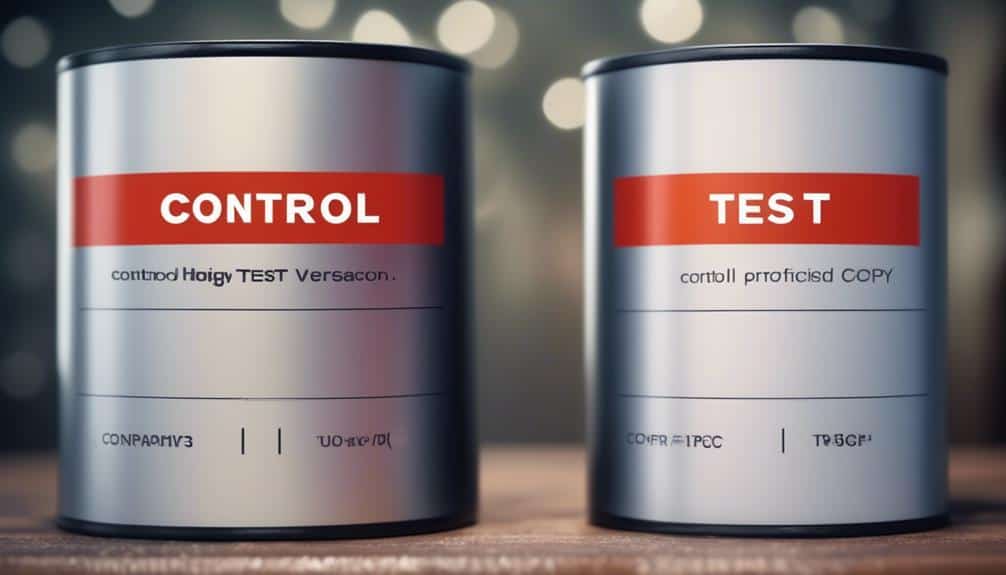Maximizing Returns: Smart Strategies for PPC Budget Allocation
In the world of pay-per-click advertising, the adage 'You need to spend money to make money' holds true, but how you allocate that budget can make all the difference.
Understanding the intricacies of PPC budget allocation is crucial for optimizing your returns. By employing smart strategies and staying vigilant in your approach, you can ensure that every penny spent contributes to your bottom line.
But where should you start and what tactics should you prioritize to maximize your ROI in this competitive digital landscape?
Key Takeaways
- Setting clear goals and objectives is crucial for optimizing PPC campaign performance.
- Keyword research strategies such as identifying long-tail keywords and incorporating negative keywords are essential for better targeting and relevance.
- Implementing a balanced bid strategy that combines automated bidding tools with manual adjustments can improve campaign results.
- Monitoring and optimizing performance through tracking metrics, reallocating budget, and refining ad creatives is key for continuous improvement in PPC campaigns.
Setting Clear Goals

When strategizing your smart PPC budget allocation, setting clear goals is crucial for achieving optimal campaign performance. Measuring success and defining objectives are fundamental components of this process. To begin, clearly defining your objectives will provide a roadmap for your PPC campaigns. Consider what you aim to achieve – whether it's increasing brand awareness, driving website traffic, or boosting conversions. These objectives should align with your overall marketing goals to ensure a cohesive strategy.
Once your objectives are established, the next step is measuring success. This involves setting key performance indicators (KPIs) that align with your goals. Whether it's click-through rates, conversion rates, or return on ad spend (ROAS), tracking these metrics will help you evaluate the effectiveness of your PPC campaigns. By continuously monitoring and analyzing this data, you can make informed decisions to optimize your campaigns for better results.
Conducting Keyword Research
Effective keyword research is a cornerstone of successful PPC campaigns, ensuring targeted and relevant ad placements to maximize engagement and conversions. To conduct thorough keyword research, start by performing competitive analysis to identify keywords driving traffic to your competitors' sites. This insight can help uncover valuable keywords that align with your campaign objectives. Utilize tools to discover long-tail keywords, which are more specific and typically have higher conversion rates. Incorporating negative keywords is equally crucial; these are terms for which you don't want your ads to appear, preventing irrelevant clicks and optimizing your budget allocation.
Furthermore, keyword research should inform your ad copy optimization strategy. By aligning your ad messaging with the keywords used in your campaigns, you can enhance ad relevance and improve click-through rates. Continuously monitor and refine your keyword list based on performance data to stay agile and maximize the effectiveness of your PPC campaigns. Remember, staying innovative and data-driven in your keyword research approach is key to achieving optimal results.
Implementing Bid Strategies

To enhance the performance of your PPC campaigns, strategically implementing bid strategies is crucial for optimizing your budget allocation and achieving your campaign objectives. Automated bidding tools can be incredibly beneficial in managing bids efficiently across keywords, devices, and audiences. These tools use algorithms to adjust bids based on various factors like historical data, user behavior, and conversion likelihood. By leveraging automated bidding, you can save time and ensure your bids are continuously optimized for maximum ROI.
However, while automated bidding can streamline the process, it's essential to supplement it with manual adjustments. Manual adjustments allow you to inject strategic human insights into the bidding process. For instance, you can manually increase bids for high-value keywords or during peak hours to maximize visibility and conversions. By combining automated bidding technology with manual fine-tuning, you can strike the perfect balance between efficiency and strategic control, leading to improved campaign performance and better allocation of your PPC budget.
Monitoring Performance Metrics
By closely monitoring key performance metrics in your PPC campaigns, you can track the impact of your bid strategies and make informed decisions to optimize budget allocation for better results. Improving conversion rates is crucial for maximizing the effectiveness of your campaigns. By analyzing metrics such as click-through rates, cost per click, and conversion rates, you can identify underperforming keywords or ad groups and reallocate budget towards those that drive higher conversions.
Optimizing targeting is another key aspect of monitoring performance metrics. By examining data on demographics, devices, locations, and times of day that perform best, you can refine your targeting to reach your ideal audience more effectively. This data-driven approach allows you to adjust your bids and ad copy to better resonate with your target market, ultimately increasing your ROI.
Regularly monitoring performance metrics is essential for staying agile in the dynamic landscape of PPC advertising. By staying proactive and responsive to the data, you can continuously refine your strategies to achieve optimal results and drive business growth.
Testing and Iterating Ads

When optimizing your PPC campaigns, testing and iterating ads is a critical step in improving performance and driving better results. Crafting compelling ad copy is essential for capturing audience attention and increasing click-through rates. A/B testing strategies allow you to compare different variations of your ad copy to determine which resonates most with your target audience.
To start, create multiple versions of your ad copy with variations in headlines, descriptions, or calls to action. Run these ads simultaneously with A/B testing to gather data on which performs best. Analyze metrics such as click-through rates, conversion rates, and cost per acquisition to identify the most effective ad copy.
Continuously iterate on your ads based on the insights gained from testing. Make incremental changes to further optimize your ad copy and drive better results. By consistently testing and refining your ad creative, you can maximize the impact of your PPC campaigns and achieve higher returns on your advertising investment.
Frequently Asked Questions
How Can I Effectively Track and Measure the Impact of My PPC Campaigns on Overall Business Goals and Objectives?
To effectively track and measure the impact of your PPC campaigns on business goals, utilize advanced analytics tools for real-time data insights. Improving performance requires constant monitoring, A/B testing, and aligning strategies with key objectives.
What Are Some Common Pitfalls to Avoid When Setting up PPC Budget Allocation Strategies?
When setting up PPC budget allocation strategies, avoid common mistakes like improper keyword research and neglecting ad performance analysis. Budgeting errors can arise from failing to track metrics closely. Stay vigilant for optimal results.
How Can I Ensure That My PPC Campaigns Are Reaching the Right Target Audience and Driving Relevant Traffic to My Website?
To ensure your PPC campaigns reach the right audience and drive relevant traffic, focus on precise audience targeting, optimize for conversions, craft compelling ad copy, and create engaging landing pages. Strategize for maximum impact.
Are There Any Specific Tools or Technologies That Can Help Streamline the Process of Optimizing PPC Budget Allocation?
Utilize automation tools and efficiency software for streamlined optimization. Incorporate data analytics and performance tracking to enhance PPC budget allocation. These technologies boost efficiency, accuracy, and drive better results for your campaigns, ensuring maximum returns.
How Can I Stay Ahead of Competitors in the Ever-Evolving Landscape of PPC Advertising?
To stay ahead of competitors in PPC advertising, conduct competitive analysis to track their strategies. Focus on ad creative optimization by testing various formats and messaging. Implement data-driven decisions to continuously innovate and adapt to the evolving landscape.
Conclusion
To maximize returns on your PPC budget, it's crucial to set clear goals, conduct thorough keyword research, implement strategic bid strategies, monitor performance metrics, and continuously test and iterate ads.
By taking a data-driven approach to your PPC campaigns, you can fine-tune your budget allocation to drive better results and achieve your business objectives.
Stay proactive, stay strategic, and watch your ROI soar.








